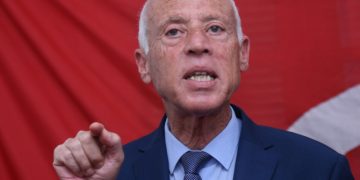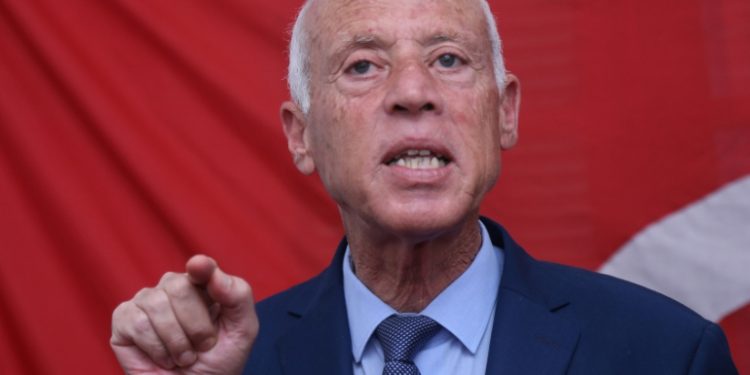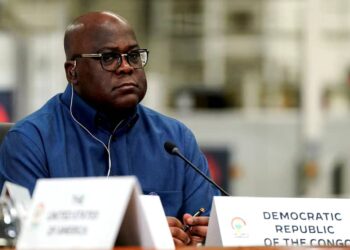By Hannatu Sadiq
Inciting political moves being played out by Tunisia’s President, Kais Saied has sparked reactions from the international community.
Recall, Saied sacked his defence minister on Monday.
The reaction comes a day after ousting the prime minister and suspending parliament, diving the young democracy into constitutional crisis in the midst of a pandemic.
After Saied dismissed Prime Minister Hichem Mechichi and ordered parliament closed for 30 days – a move the biggest political party Ennahdha decried as a “coup”.
Soldiers blockaded the assembly in Tunis while the president supporters hurled stones, bottles and insults at supporters of the Islamist-inspired Ennahdha, whose leader was barred entry to the complex.
Troops also surrounded the office of Mechichi.
Saied declared on Sunday that he had “taken the necessary decisions to save Tunisia, the state and the Tunisian people,” following street protests in multiple cities against the government’s handling of the Covid pandemic in the North African country.
The president, who under the constitution controls the armed forces, warned his opponents against taking up arms, threatening that if anyone “fires a single bullet, our forces will respond with a rain of bullets”.
On Monday afternoon, the presidency announced the dismissals of Defence Minister Ibrahim Bartaji and Hasna Ben Slimane, the acting justice minister.
The violent day ended with the presidency extending an overnight curfew in place to combat the coronavirus and banning gatherings of more than three people.
Saied’s dramatic move — a decade on from Tunisia’s 2011 revolution, often held up as the Arab Spring’s sole success story — comes even though the constitution enshrines a parliamentary democracy.
It “is a coup d’etat against the revolution and against the constitution,” said Ennahdha, the lead party in Tunisia’s fractious ruling coalition, warning its members “will defend the revolution”.
The powerful Tunisian General Labour Union (UGTT) which played a key role in the 2011 uprising, said the president had acted “in accordance” with the constitution to “prevent imminent danger and to restore the normal functioning” of the state.
Reacting, US Secretary of State Antony Blinken on Monday spoke by telephone with the Tunisian president asking him to respect democracy and “maintain open dialogue with all political actors and the Tunisian people,” the State Department said.
The European Union have also called for respect of the “rule of law” and to “avoid any resort to violence” while former colonial ruler France urged a speedy return to “normal functioning” of the government.
Russia said it was monitoring the situation, while Turkey, where the government supports Ennahdha, called for “democratic legitimacy” to be restored.



































